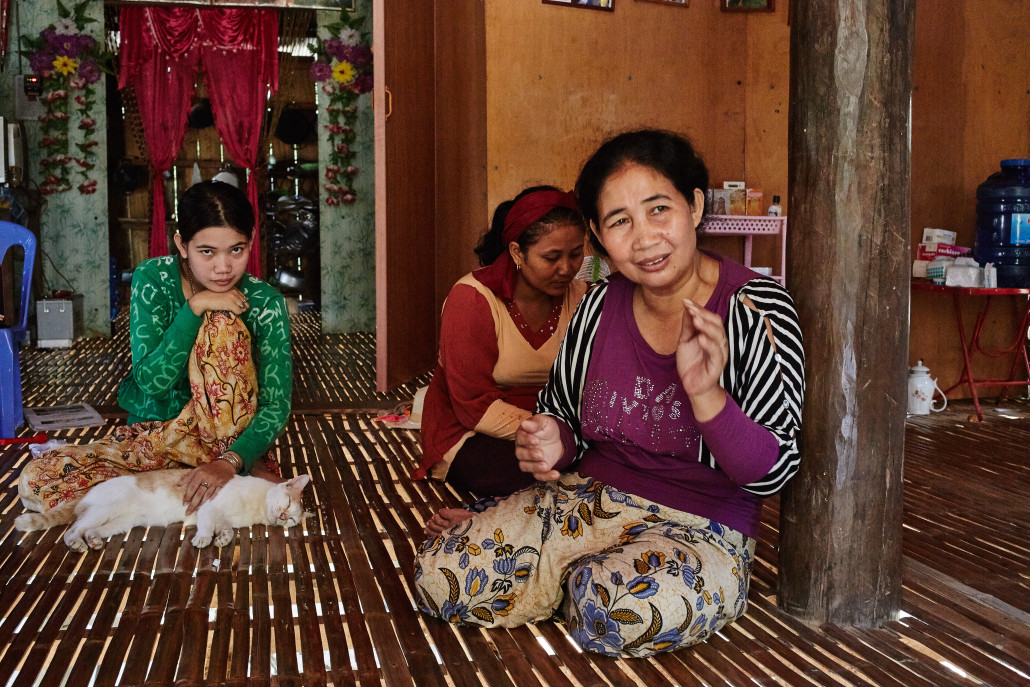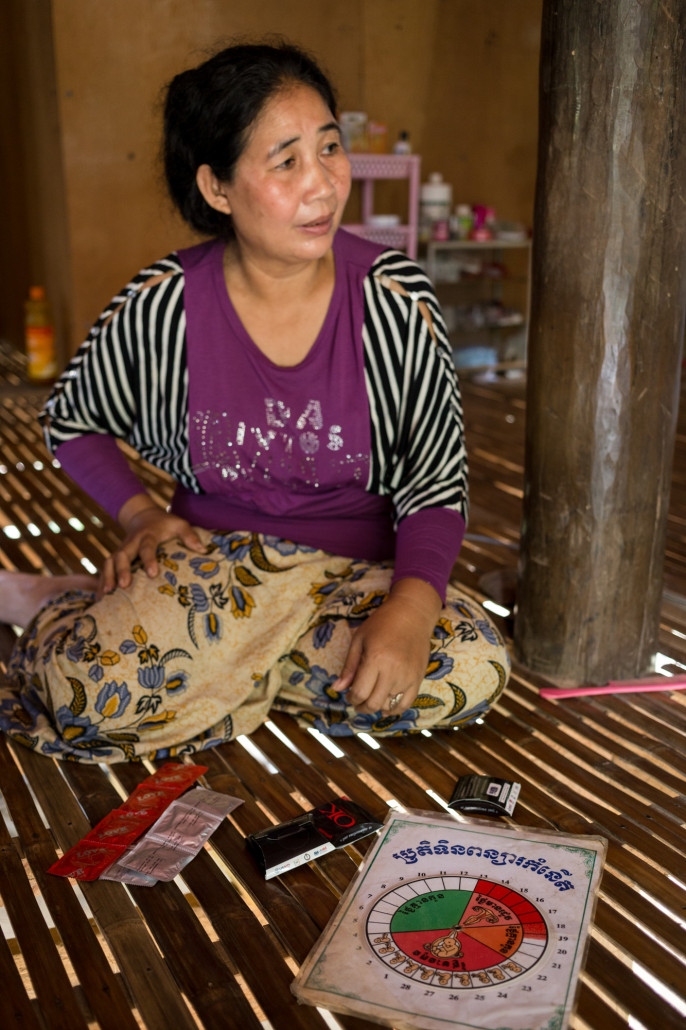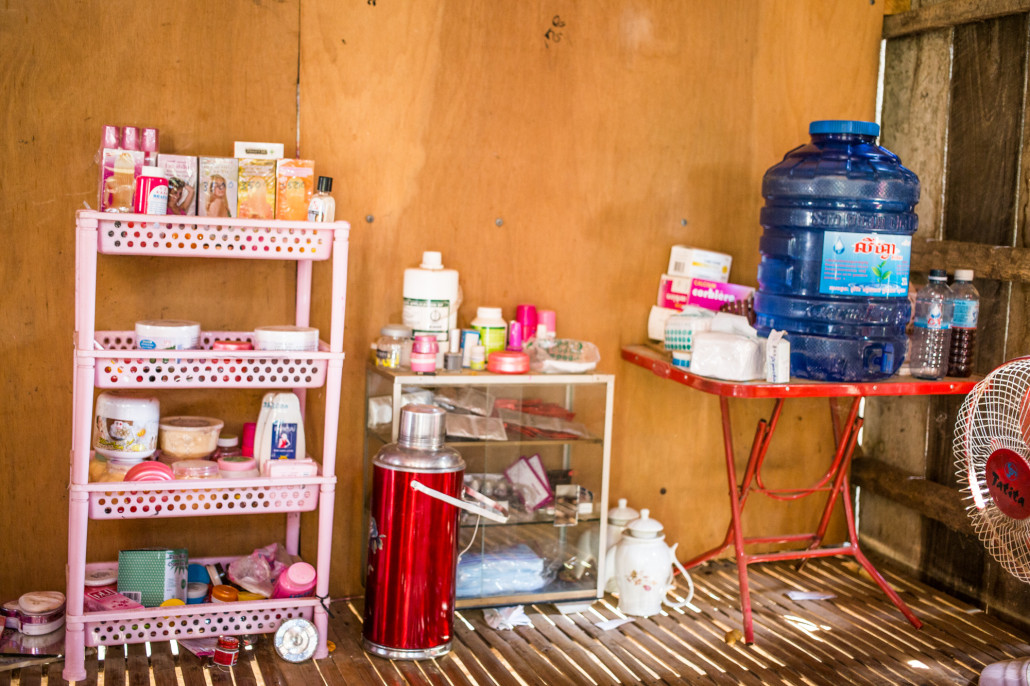Saved Labor Helps Mrs. Man Provide More Birth Control Education
Pram Damleng Village, Peam Chileang Commune
Cambodia
Mrs. Man Ti Ma has something of an unconventional business and household, at least at first glance. While much of her income comes from family land that Mrs. Man rents out for growing rice, Mrs. Man’s main focus is on a beauty supply and family planning business in her local Muslim Cham community. Alongside beauty supplies, make up and hair dye Mrs. Man and her daughter provide education on natural family planning along with birth spacing pills, condoms, and pregnancy tests.
Unlike some of the other families in her community, Mrs. Man has long had enough money to buy wood to boil water. Before the Community Water Treatment plant was installed in her community Mrs. Man would buy wood, gather water, and spend time each day boiling the water to drink. The routine of making a fire and boiling water took away time from Mrs. Man’s family and her business.
“Not needing to boil water gives us time back to see customers and so business has improved. We give customers who show up the water to drink and they like it, leading some of them to buy it for their families. With increased income I can now give my son 5,000 Riel for food and allowance every day instead of 2,000 Riel before.” Mrs. Man said.
Mrs. Man is divorced and needs to care for her son and daughter alone. Any time spent on household chores took away time from her family and her business. Boiling water wasn’t a perfect solution either: Mrs. Man’s 15 year old son, Ei Amanas, still got sick about twice per month and missed school.
“With the treated water from the Community Water Treatment plant my family is healthier and my son doesn’t get sick anymore. I think that our skin looks better as well. I tell the women who come to me for beauty treatments to drink the water so that their skin will be healthy and clear.” Mrs. Ma said.
Now that her family spends less time acquiring water they spend more time on their businesses. Four to five customers per day arrive, many initially for beauty supplies, but some leave with either family planning education or condoms, birth spacing pills, or pregnancy tests.
Mrs. Man is a member of the commune government and also spent five years as a member of the Reproductive Health Association of Cambodia. The RHAC educated Mrs. Man on how to train the local community about birth control. When the RHAC recently closed Mrs. Ma decided to continue the education on her own.
As outsiders we were initially uncomfortable asking Mrs. Ma about the birth control business when we saw the stocks of condoms and pills in her cabinets. Our assumptions made us think it might be a secretive business. This turns out not to be the truth at all: Mrs. Man’s community fully supports her role as an educator.
“The community doesn’t support abortion, but birth control is fine.” Mrs. Man told us.
While most visitors come for beauty supplies during the day, Mrs. Ma’s birth control business picks up at night: “People arrive late, even when the door is locked, if they need birth control urgently.” Mrs. Ma said with a laugh. “They bang on the door, and if we are home we help them, but we do wish they would plan ahead.” She continued.
This project in Peam Chileang commune, implemented under the Community Water Enterprise programme in Cambodia, was supported with co-funding from the Prince Albert II of Monaco Foundation.





